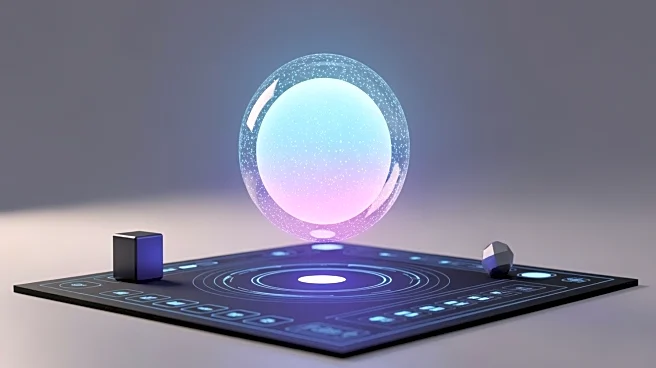What's Happening?
Opera has announced the addition of a new AI agent, the Opera Deep Research Agent (ODRA), to its Opera Neon browser. This marks the fourth AI agent integrated into the browser, highlighting Opera's commitment
to advancing agentic browsing. The ODRA is designed to assist users in conducting deep research on various topics, leveraging Opera's AI Engine, which is model and tool agnostic. This allows the combination of different models, such as Gemini and GPTs, to optimize research capabilities. The introduction of ODRA is part of Opera's broader strategy to expand the number of agents available in Opera Neon, aiming to provide users with a more intuitive and scalable browsing experience. Opera plans to introduce a new user interface that will help users select the appropriate group of agents for specific tasks, enhancing the overall functionality of the browser.
Why It's Important?
The introduction of the Opera Deep Research Agent is significant as it represents a shift towards more sophisticated browsing tools that cater to users' evolving needs. By integrating multiple AI agents, Opera is positioning itself as a leader in the development of advanced browsing technologies. This move could potentially impact the way users interact with web browsers, making them more efficient and capable of handling complex tasks. For industries reliant on web research, such as academia and market analysis, the enhanced capabilities of Opera Neon could lead to improved productivity and insights. Additionally, Opera's focus on user-centric design and AI integration may influence other browser developers to adopt similar strategies, potentially reshaping the competitive landscape of web browsing technology.
What's Next?
Opera plans to continue expanding the number of AI agents within Opera Neon, with future updates aimed at refining the orchestration layer that manages these agents. This layer, internally referred to as Symphony, will enable a unified intelligence system that simplifies user interaction with multiple agents. As Opera Neon is currently available to a limited number of users through an early access program, broader availability may follow, allowing more users to experience the enhanced browsing capabilities. Opera's ongoing commitment to integrating cutting-edge AI tools, such as SORA 2 by OpenAI and Nano Banana by Google, suggests that further advancements in AI-driven browsing are on the horizon.
Beyond the Headlines
The development of Opera Neon and its AI agents raises questions about the ethical implications of AI in web browsing. As AI becomes more integrated into daily internet use, concerns about data privacy and the potential for AI to influence user behavior may arise. Opera's approach to creating a unified intelligence layer that learns user preferences and working styles could lead to discussions about the balance between personalization and privacy. Additionally, the success of Opera's agentic browsing model may prompt other tech companies to explore similar innovations, potentially leading to a broader cultural shift in how users engage with digital content.










